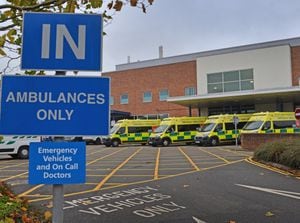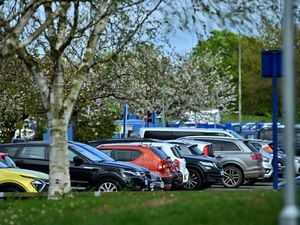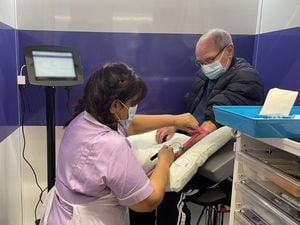Ambulance service takes more than 20,000 calls over five-day period
A sharp increase in the number of 999 calls has resulted in a busy festive period for West Midlands Ambulance Service.

The service took more than 3,000 additional calls this year compared to 2019, a rise of 17.3 per cent.
Over the five days from December 24 to 28, the trust took 22,826 emergency calls compared to 19,467 in 2019.
WMAS chief executive Anthony Marsh said: “I would like to thank the many thousands of staff who worked over the Christmas period while most people were enjoying time with their family and friends.
“It is not just the staff on the road who worked so hard; I want to particularly note the work of the staff in our control rooms.
"These staff are at the forefront of everything that we do, finding out where we are required but also what is wrong with the patient so that our ambulance crews know what they are going into.
“The task at hand for our call handlers and dispatchers is often just as difficult as that experienced by our road staff; they all work exceptionally hard.
“I also want to thank the staff who support these staff, be it the vehicle preparation operatives who clean, fuel and restock the ambulances; the fleet mechanics who make sure we always have ambulances available but also the managers who look after the staff – it is a real team effort.”
This rise comes after ambulance chiefs issued a stark warning about the pressure on the service over the number of 999 calls waiting for a response.
The WMAS board held a meeting earlier this month where it upgraded the ‘risk status’ for ‘call stacking’ for both 999 and 111 calls to ‘25’, the most severe rating available.
This was only the second time the trust has ever rated any risk categories at ‘25’, the first being in October where hospital handover delays were identified as putting patients at "catastrophic risk" of harm.
WMAS’s director of clinical commissioning, Mark Docherty, said "We continue to do everything possible to get to patients as quickly as possible and review the situation constantly to try and find further solutions.
"Unfortunately, the whole of the NHS remains under severe pressure which is being felt intensely in our service in the West Midlands and hospital handover delays do mean patients are waiting longer for an ambulance to come to them in the community.
"We are working with all local partners across the health and care system to reduce delays so crews can respond to the next incident as quickly as possible, and staff and volunteers continue to work tirelessly to respond as soon as we can."





